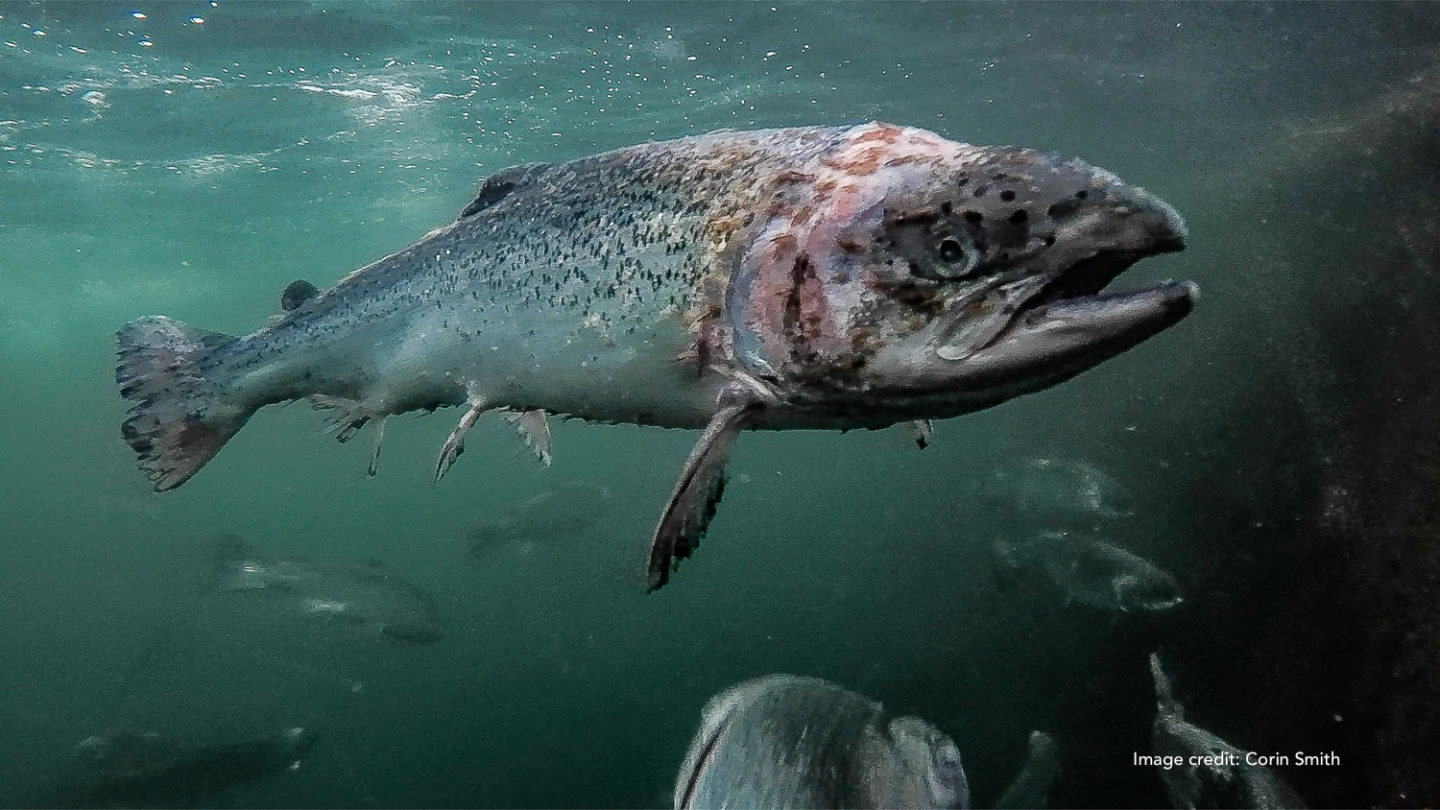An international food labelling scheme is to allow five times more lice at salmon farms, prompting Scotland’s official fisheries management body to withdraw its support.
The Aquaculture Stewardship Council (ASC), whose logo on supermarket packaging certifies approved brands of farmed fish as “environmentally and socially responsible”, is increasing the number of lice permitted on caged salmon in Scotland from 1 February.
The change has been condemned by Fisheries Management Scotland (FMS), which brings together 66 angling and river groups. The new standard “fundamentally undermines the integrity of the ASC scheme” and means it is no longer a “credible” way of protecting wild fish, FMS said.
Campaigners also lambasted the ASC for “greenwash” and warned it had been “captured” by multinational salmon companies. Firms were now “rushing” to acquire the ASC label to boost sales, they claimed.
The ASC, however, accused FMS of misinterpreting the change and making “misleading” claims. The new standards introduced a “far stricter” deadline for reducing lice numbers, it said.
Farmed salmon are sometimes infested by large numbers of sea lice, which eat them alive. There are concerns that the lice can spread to wild salmon and sea trout, damaging their health.
The ASC was set up in 2010 with the help of the environmental group, WWF Netherlands. It currently certifies 30 aquaculture sites in the UK and over 2,000 worldwide, with more than 21,000 products bearing the ASC label.
Since 2020 FMS has been a member of the ASC’s technical consultation group considering new lice standards for salmon farms in Scotland. FMS has repeatedly opposed a proposed increase in the number of permitted lice.
But in September 2022 ASC decided to allow certified salmon farms to increase the average number of adult female lice per salmon from 0.1 to 0.5. This fivefold increase “considerably lowers the bar” for farms to achieve certification, FMS said.
Lice increase ‘disappointing and frustrating’
In a statement, FMS described ASC’s decision after two years of engagement as “disappointing and frustrating”. The change “fundamentally undermines the integrity of the ASC scheme”, FMS said.
FMS chief executive, Dr Alan Wells, warned that the new standards would fail to protect wild salmon and sea trout from harm. “Fisheries Management Scotland do not see ASC certification as a credible form of protecting wild fish,” he told The Ferret.
The Coastal Communities Network, which involves 24 groups in Scotland keen to protect the marine environment, said that ASC should be “ashamed” of itself. “It seems to have been captured by the fish farming industry,” said the network’s John Aitchison.
“As a result of this relaxation in its rules, Scottish fish farm companies are rushing to get their farms certified. Sainsbury’s is already advertising all its salmon as coming from ASC-certified farms.”
The campaign group, WildFish, argued that certification should encourage companies to go beyond national regulations. “What we have seen with ASC’s move in Scotland is the polar opposite of this,” said Scotland director, Rachel Mulrenan.
“This is a breach of the trust consumers place in ASC,” she added. “ASC certification is not worth the paper it is written on, and instead merely facilitates industry greenwash.”
Lice criticisms ‘misleading’
But the Aquaculture Stewardship Council accused FMS of “misinterpretation” and described its statement as “misleading”. The revised lice standards would “deliver improved practice enabling protection of wild salmon,” it said.
ASC’s spokesperson, Sophia Balod, argued that the “metric limit” on lice shouldn’t be judged in isolation. “The revised ASC salmon standard significantly improves the control mechanism once the metric limit is reached or exceeded,” she told The Ferret.
If salmon farms exceeded the limit, they had 21 days to reduce lice numbers below the limit. “This timeline is far stricter compared to the regular non-compliance timeline,” Balod said.
She pointed out that if farms failed to meet the deadline, their certification would be cancelled. “This new requirement is the most severe action the ASC can require, and as such sends a strong message to the industry to manage lice levels in a responsible manner,” she added.
Salmon Scotland, which represents salmon farming companies, maintained that their fish met the highest environmental, nutritional and sustainability standards. “We’re proud that the hard work and dedication of our farmers is recognised by a growing number of international bodies,” said the organisation’s spokesperson, Andrew Watson.
The full statement from the Aquaculture Stewardship Council is available here. Cover image with thanks to Corin Smith.














